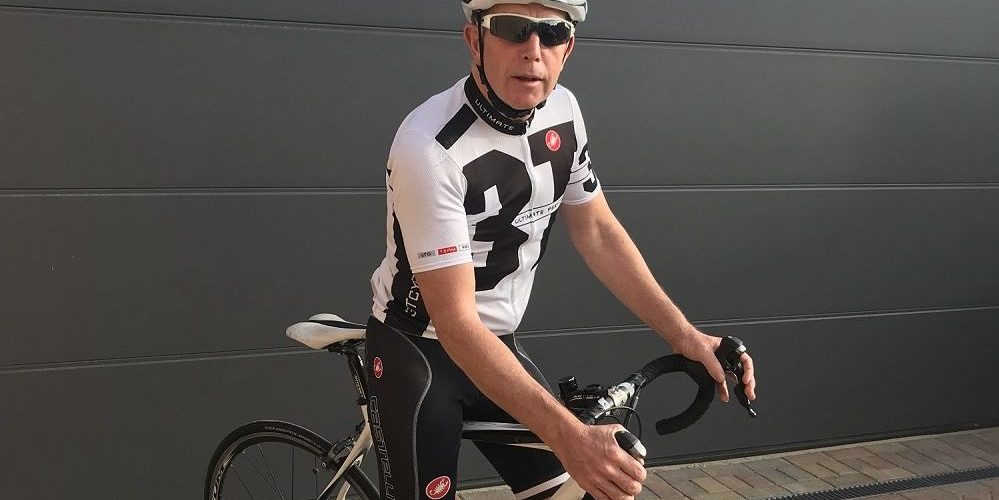Why we fly
Ian’s Story

I remember hearing a helicopter and being on a stretcher, but not very clearly. Then I was in the Accident & Emergency Department at the hospital in Coventry.
It was snowing and the roads were slippery when keen cyclist Ian Lewis and eight fellow members of his cycling group set off on a 100km ride to prepare for a charity event later in the year.
“The weather was horrendous but, because it was an organised event with 500 entries and all profits going to charity, we decided to go ahead despite it being so cold and the conditions so bad,” he explains.
But it was a decision that Ian, from Earls Barton in Northamptonshire, was to later regret after his bike slid from under him on a tight right hand bend on a lane near the village of Hellidon and he went crashing to the ground.
Probably due to shock, he has limited awareness of the exact turn of events after the accident happened in February 2013.
“I remember hearing a helicopter and being on a stretcher, but not very clearly. Then I was in the Accident & Emergency Department at the hospital in Coventry,” he says.
It took Warwickshire & Northamptonshire Air Ambulance just nine minutes to fly Ian from the scene of the accident to University Hospital Coventry & Warwickshire. A combination of hazardous driving conditions and the remote location meant that the helicopter was the safest and quickest form of transport to get him to the specialist trauma care he needed.
Ian had fractured his right hip and underwent an operation on the same day to put two screws into the bone to repair it. He was in hospital for six days and had to have four months off work to recover.
“The care I got from the air ambulance crew was superb. They arrived quite soon after the accident happened and got me to hospital very quickly. They provide a fantastic service which is funded by donations and fundraising when, I think, most people would expect it to be paid for from our taxes,” he says.
During his recuperation period Ian used an exercise bike to get fit again and six months after the accident he was well enough to complete the ride he was prevented from finishing when he skidded on the icy road.
Ian says: “I’m sure that the air ambulance’s attendance on that morning and its ability to get me to A&E so soon after the accident were paramount to my speedy recovery. Without it – bearing in mind the cold conditions – my situation could have been a whole lot worse and may have even meant the end of my cycling for good.”
